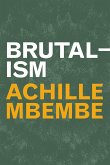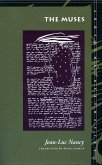"Deeply informed by jazz as music and sociality, Fumi Okiji explores black movement of thought as marked by a failure to be adequately disturbed by contradiction. The tarrying with the negative so crucial to European critical theory cannot quite account for the exorbitance characteristic of black thought. This is an orientation that allows for an oversubscription of intention, sense, and logic, against the parsimony prized by the dialectical form. Attending to the black immoderation that registers as nonsense or deafening feedback from the perspective of European thought, Okiji tunes in to moments ranging from the Haitian revolutionary forces' singing of "La Marseillaise" to Cecil Taylor's synesthetic poetics to the aporetic mien of the orisha Esu. She brings our attention to a galaxy of intimacies that flash up with such improvisatory and untimely thought. Extending the encounter between black study, Frankfurt School critical theory, and sound studies developed in Jazz as Critique, and drawing Yoruba aesthetics into this cluster, On Black Exorbitance is both a statement of non-citizenry and a preparation for practices of intoxication"--
Hinweis: Dieser Artikel kann nur an eine deutsche Lieferadresse ausgeliefert werden.
Hinweis: Dieser Artikel kann nur an eine deutsche Lieferadresse ausgeliefert werden.








